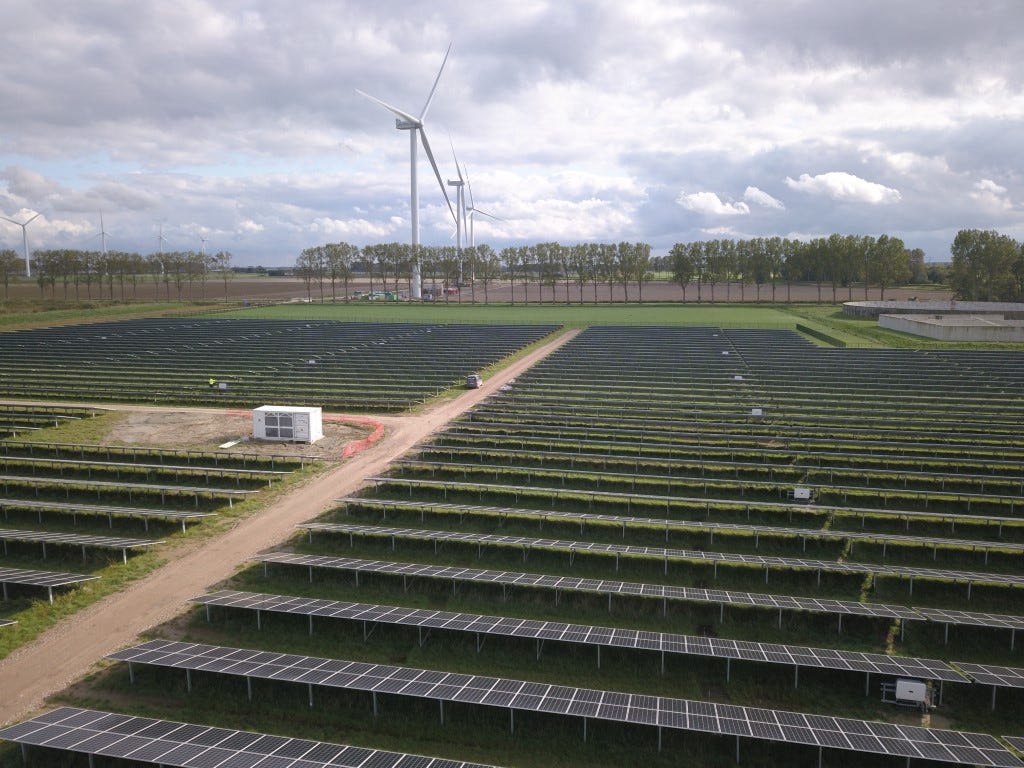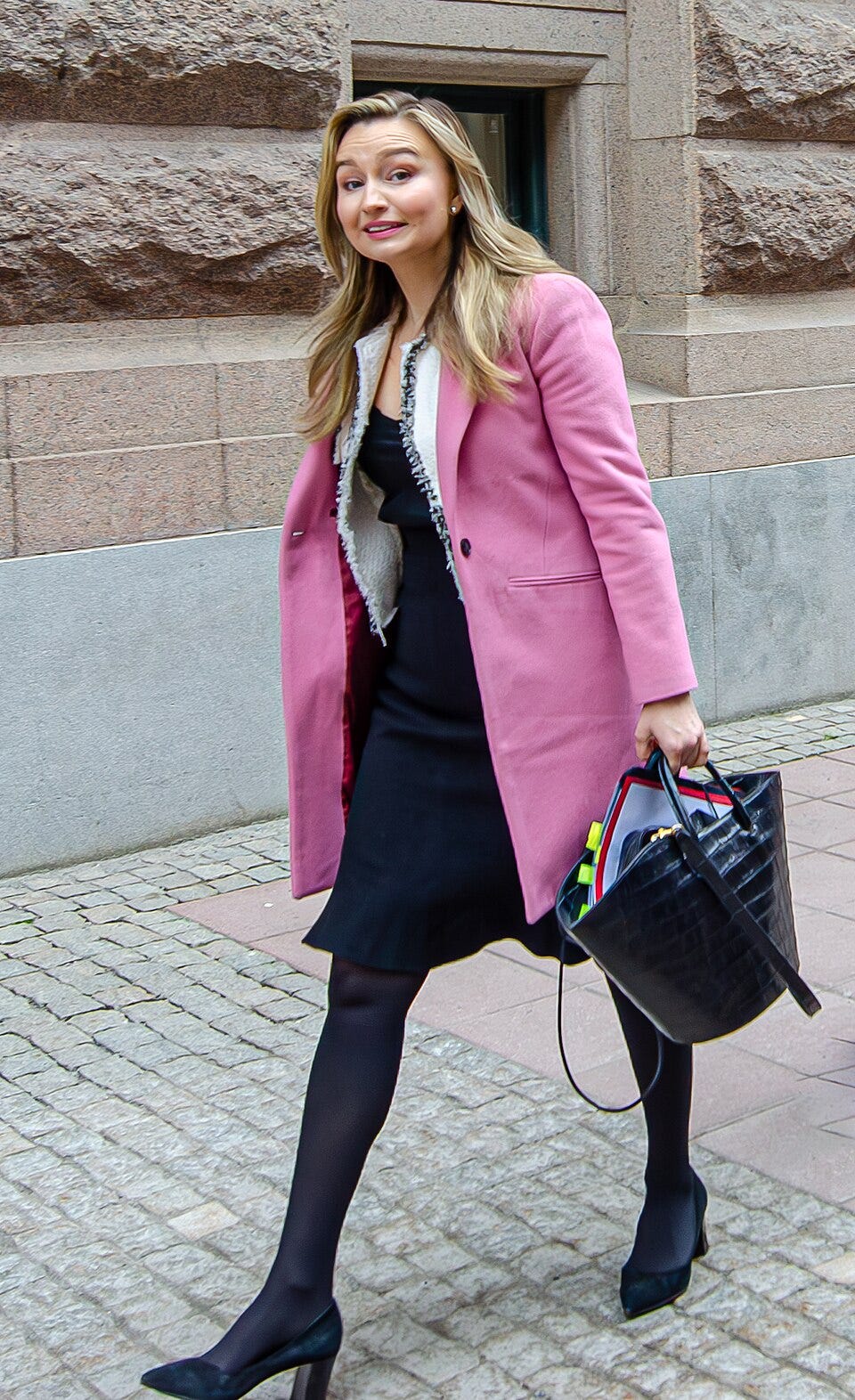News Round-Up: Rumble Wins Censorship Case in France, ‘Renewables’ Destroy the Dutch Grid, and Huge AI Surveillance Increase in Hong Kong
Every week, the editorial team of Freedom Research compiles a round-up of news that caught our eye, or what felt like under-reported aspects of news deserving more attention.
Over the past week, the following topics attracted our attention:
Rumble Wins Censorship Case Against France
Wind and Solar Are Immensely Hurting the Dutch Electricity Grid and Economy
Hong Kong Plans to Dramatically Increase AI Surveillance
Sweden Discusses Burqa and Niqab Ban
Teacher Sacked for Putting British Flags up on the Streets
Rumble Wins Censorship Case Against France
Video-sharing platform Rumble has restored access to its services in France after a victory in French court, the company’s founder and CEO, Chris Pavlovski, announced on Tuesday.
This followed a judgment by a French judge on Monday, which sided with Rumble in a landmark decision.

The case stemmed from a 2022 incident in which a French government official emailed Rumble demanding the removal of certain content, specifically videos from Russian state media, including Russia Today (RT), under a threat of legal action.
Rather than to comply, Rumble proactively blocked access to its platform in France to avoid censorship. The court ruled that the email from a Cabinet official did not constitute an enforceable legal action, effectively invalidating the demand. As a result, Rumble immediately began restoring access.
Pavlovski commented that the company is thrilled about the decision: “Freedom wins out again, and we are thrilled that the French people will once again have access to the Rumble public square, where the free exchange of ideas happens around the clock. France has a rich history of fighting for individual freedoms, which aligns seamlessly with Rumble, as we are a freedom-first platform in everything we do. We look forward to turning the page in France and beginning a new chapter.”
Wind and Solar Are Immensely Hurting the Dutch Electricity Grid and Economy
In a Dutch government TV campaign called “Flip the Switch,” an actress warns viewers about their electricity usage, the BBC reports. “When we all use electricity at the same time, our power grid gets overloaded,” she says. “This can cause malfunctions. So, use as little electricity as possible between four and nine.”
The Netherlands has been an enthusiastic adopter of electric cars. It has the highest number of charging points per capita in Europe. As for electricity production, the Netherlands has replaced gas from its large North Sea reserves with wind and solar, so much so that it leads the way in Europe for the number of solar panels per person. In fact, more than one-third of Dutch homes have solar panels fitted. The country is also aiming for offshore wind farms to be its biggest source of energy by 2030. As for now, wind and solar together make up 70% of electricity generation.

Such developments are now putting the Dutch national electricity grid under enormous stress and in recent years, a number of power cuts have already occurred. According to the chief executive of Dutch energy producer and supplier Eneco, Kees-Jan Rameau, the problem is “grid congestion.” “Grid congestion is like a traffic jam on the power grid. It’s caused by either too much power demand in a certain area, or too much power supply put onto the grid, more than the grid can handle,” Rameau said.
He explains that the problem is that the grid “was designed in the days when we had just a few very large, mainly gas-fired power plants.” However, with wind and solar, there is a lot of power being injected into the grid in the outskirts of the network, and the small power lines cannot handle such pressure.
This means there isn’t enough power to keep the economy going at full speed. Tennet, the government-owned agency that runs the Netherlands’ national grid, says that 8,000 companies are currently waiting to be able to feed in electricity, while 12,000 others are waiting for permission to use more power. Tennet is now planning to spend €200bn ($235bn; £174bn) on reinforcing the grid, including laying some 100,000 km (62,000 miles) of new cables between now and 2050. That’s a huge amount of money, but there is also a big cost to not spending it – grid congestion is costing the Dutch economy up to €35bn a year, according to a 2024 report from management consultancy group Boston Consulting Group.
Hong Kong Plans to Dramatically Increase AI Surveillance
Hong Kong is preparing for a major expansion of its public surveillance network, aiming to install approximately 60,000 CCTV cameras by 2028, Reclaim the Net reports.
This marks a dramatic increase from the fewer than 4,000 currently in operation under the police-led SmartView program. Police officials told lawmakers that the upgraded network would integrate artificial intelligence tools already in use for license plate reading and crowd analysis. They described suspect tracking across the network as a function that could “naturally” follow once the infrastructure is in place.

The scale mirrors similar initiatives that have already become common across cities in mainland China, where AI-powered monitoring is widely used. Authorities have acknowledged that the new cameras will be equipped for facial recognition and other forms of automated image processing.
Hong Kong’s trajectory places it among the most surveilled urban centers in Asia.
Sweden Discusses Burqa and Niqab Ban
Swedish Christian Democrat leader and deputy prime minister Ebba Busch proposes a ban on burqa and niqab in public spaces. She argues that the ban is needed to combat honour-based oppression, among other things, The Nordic Times reports.
The proposal is part of a “development initiative for increased social cohesion” that a working group within the Christian Democrats (KD) has prepared for the autumn. Busch argues that the niqab and burqa are expressions of a strict interpretation of Islam that is incompatible with Swedish values. Islam must adapt in Sweden. One can be a proud Swedish Muslim, Christian, Jew, or atheist, but it is fundamental Swedish values that must apply to all of us,” she said to the newspaper Aftonbladet.

She points out that Sweden must “wake up” from the naivety that has placed the country in a culture war where more and more people live under honour-based oppression. “It is that type of very naive liberalism, or lax Social Democrat politics, that has brought Sweden to the situation we are in today. With a failed integration that currently means that approximately a quarter of a million young people in Sweden are estimated to live under honour-based oppression-like circumstances,” Busch said.
The ban would cover, for example, public places such as squares, shopping centers and healthcare facilities. The proposal has not yet been anchored with the other Tidö parties (the Swedish center-right governing coalition). However, opposition leader Magdalena Andersson of the Social Democrats (S) says she is prepared to discuss such a ban.
UK: Teacher Sacked for Putting Up British Flags on Streets
A supply teacher alleges he was dismissed from his role after being “snitched on” for putting up flags around his hometown, Manchester Evening News reports. Shaun Remmer, from Thirsk in North Yorkshire, had been hanging British and other flags around the town, which he describes as a “symbol” of the United Kingdom’s “unity”. He claims to have put up a total of 150 flags around the small town, and that many locals welcomed his “decorations”.
However, some were not so fond of his actions, and the school he worked for received a complaint about it. On top of that, Remmer had posted on social media his concerns about young girls getting raped in the country. “They basically said they do not want me back and no longer want me to work at the school because I am racist. I tried to get some work at another agency, but they had heard what happened, and they turned me down as they said it was a ‘safeguarding issue’,” Remmer said.



We all have the right to display our country's flag/s and it should also be regarded as normal to fly one's national flag while in another country. In no way is it racist.
Those who suggest otherwise are trying to hide genuine National Pride, and these bad actors probably have another agenda = to try to dominate, control and oppress Patriots of each nation.
Unjabbed Mick (UK Patriot) Proud and living longer!
A problem with socialist governments is that they don't give a darn about the problems that they inflict upon their subjects. I don't know whether the Dutch government is evil, misdirected, or malignant, but it's not looking good for the people.
Ironic? Isn't socialism supposed to be about serving the people?